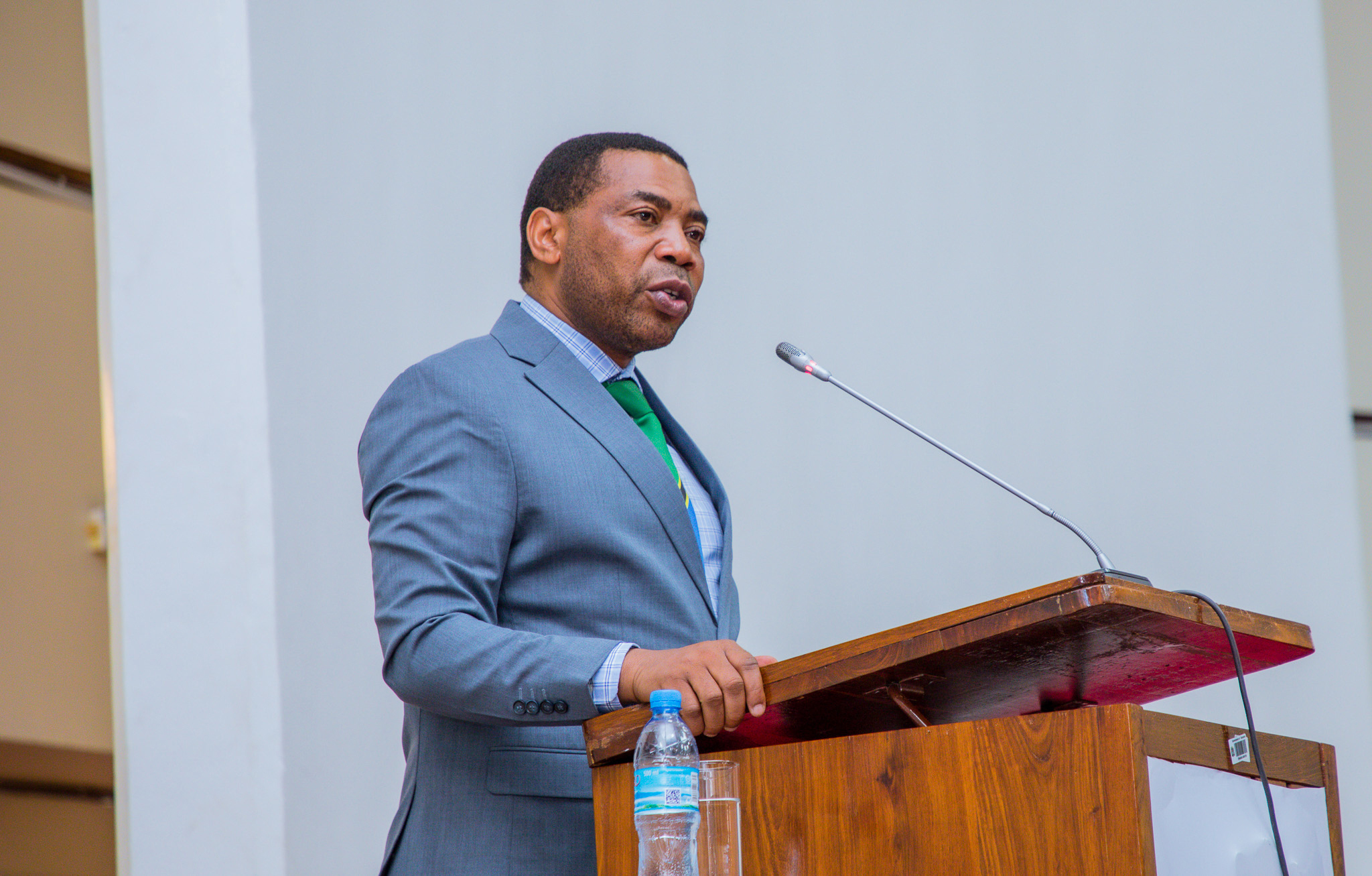Prime
Economists weigh in on Tanzania’s projected Sh49 trillion Budget

Minister of State in the President Office (Planning and Investment) Kitila Mkumbo (left) and Finance minister Mwigulu Nchemba congratulate one another after the presentation of the 2024/25 Budget Framework and 2024/25 Development Plan in Dodoma on March 11, 2024. Looking on is Planning and Investment permanent secretary Tausi Akida. PHOTO | COURTESY
What you need to know:
- Speaking to The Citizen on Tuesday, they said the 2024/25 Budget Framework, which the government presented before MPs in Dodoma on Monday, contains some promising aspects for Tanzania’s development endeavours, but they warned against dependence on development partners
Dar es Salaam. Economists have urged the government to reduce its dependence on donors and come up with measures that will promote the role of the private sector in financing development projects.
Speaking to The Citizen on Tuesday, they said the 2024/25 Budget Framework, which the government presented before MPs in Dodoma on Monday, contains some promising aspects for Tanzania’s development endeavours, but they warned against dependence on development partners.
“Our development budget still relies heavily on development partners, which is why it is difficult to implement fully or at least to a large extent,” said an economist and a lecturer at the University of Dodoma (Udom), Dr Mwinuka Lutengano.
According to the budget framework presented by Finance minister Mwigulu Nchemba, the government plans to collect and spend a total of Sh49.346 trillion, a 11.2 percent rise from the current Sh44.4 trillion.
Sh15.789 trillion will be spent on development projects, being a 3.8 percent rise from the current budget’s Sh15.22 trillion.
Domestic sources will account for Sh12.148 trillion of the development expenditure, while foreign-sourced funds will account for Sh3.641 trillion of the development budget.
But according to Dr Lutengano, much as the country could succeed in a number of areas, it is time the country did away with foreign financing of its development expenditure if it intends to execute the budget in its entirety.
“There is a need to change this because these projects are the ones that drive the country’s development. They should be given priority over anything else,” he said.
Dr Lutengano added that instead of relying on foreign sources, Tanzania can do well if it increases efforts in utilising public-private partnerships (PPPs) in the execution of development projects.
“This will ensure that projects are completed quickly,” he said, adding that diaspora bonds can also be of great help.
“We only need to learn from other countries on how they have succeeded instead of sticking to the same strategies that haven’t brought much success in our annual budgets.”
Dr Emmanuel Maliti, an economist and lecturer at the University of Dar es Salaam, shared similar sentiments, saying diaspora bonds are a viable option in boosting the implementation of the budget.
“By tapping into the financial resources of Tanzanians abroad, these bonds offer a significant injection of capital for infrastructure projects outlined in the budget,” he said.
Issuing diaspora bonds denominated in foreign currencies can stabilise Tanzania’s foreign exchange reserves by mitigating currency fluctuations and external economic shocks, Dr Maliti added.
“Diversifying funding sources through Diaspora bonds reduces reliance on domestic taxes and external loans, strengthening financial stability.”
In a nutshell, the 2024/25 Budget Famework shows that at least seven areas will get the lion’s share of the funds.
A sizeable slice will go towards servicing the government’s debt, payment of civil servants’ salaries, this year’s local government elections, preparations for the 2025 General Election, and payments of arrears owed to contractors and service providers.
An economist from Saint Augustine University of Tanzania (SAUT), Dr Isaac Safari, said the increase in budget allocation for the 2024/25 financial year as presented in the budget framework was a positive sign of the government’s commitment to addressing key developmental challenges.
However, he cautioned that the allocation of a significant portion of funds towards debt servicing raises concerns about the sustainability of public finances.
“The government must prioritize fiscal discipline and explore avenues for revenue generation to reduce reliance on borrowing.”
Dr Safari added that PPPs hold significant promise for Tanzania’s fiscal year budget implementation.
“With careful planning and collaboration, PPPs could be a game-changer in Tanzania’s quest for sustainable development and fiscal stability.”



